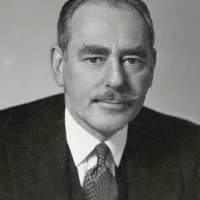Charles “Chip” Bohlen (August 30, 1904 – January 1, 1974) served in the Foreign Service from 1929 to 1969 and succeeded George Kennan as Ambassador to the Soviet Union (1953–1957). He later served as Ambassador to the Philippines (1957–1959), and to France (1962–1968) and was one of the nonpartisan foreign policy advisors known as “The…
Turning the Tables: An Interview with Stu Kennedy
In this interview with the Foreign Service Journal, Charles Stuart Kennedy talks about his Foreign Service career and pioneering work creating American diplomacy’s oral history program. On June 18, 2014, Stu was given the American Foreign Service Association’s (AFSA) Lifetime Contributions to American Diplomacy Award in recognition of his distinguished Foreign Service career and lifetime of public…
“Military overreach cannot be offset by diplomatic incapacity”
2014 marks the 100th anniversary of the start of World War I, the devastating “war to end all wars.” While the world is a very different place than it was a century ago, retired Ambassador Chas W. Freeman notes that on the eve of WWI, nations began to conflate “military posturing with diplomacy, much as events…
Blessed — An Encounter with Mother Teresa
Born in Albania on August 26, 1910, Anjezë Gonxhe Bojaxhiu, later known as Mother Teresa, devoted the majority of her life to serving India as a teacher, nurse, missionary and head of a major charitable organization. After joining the Sisters of Loreto as a young woman, Sister Teresa traveled to India and worked as a… Read More "Blessed — An Encounter with Mother Teresa"
Dean Gooderham Acheson served as Secretary of State under President Truman from 1949-1953. Noting his enormous influence, historian Randall Woods described Acheson as “a primary architect” of the Cold War. A lifelong Democrat, he began his career in public service as a law clerk for Supreme Court Justice Louis Brandeis. He was appointed Under Secretary…
PTSD in the Foreign Service — The Embassy Beirut Bombing
In an unprecedented suicide attack on Americans, the U.S. Embassy in Beirut was bombed on April 18, 1983. The tragedy has been called the first terrorist attack by religious radicals on an American embassy. Seventeen Americans, including Foreign Service Officers and USAID workers, were killed in the blast while sixty-seven of their colleagues survived. In…
The Overthrow of President Obote and Evacuation from Uganda
After a disputed election brought Milton Obote (at right) to power in Uganda in 1980, one of his opponents, Yoweri Museveni, led an armed resistance against the government. The subsequent Ugandan “Bush War” between Museveni’s National Resistance Army (NRA) and the government’s Uganda National Liberation Army (UNLA) lasted from 1981 to 1986. In 1983, ethnic… Read More "The Overthrow of President Obote and Evacuation from Uganda"
“You’re Outta Here!”: Getting Declared Persona Non Grata
When a nation declares a diplomat “persona non grata,” it is essentially kicking him or her out of the country. The host nation does not have to explain why it wants to PNG someone, but that person must leave the country in a given time period, often within 24-48 hours. Governments declare people persona non… Read More "“You’re Outta Here!”: Getting Declared Persona Non Grata"
An Iraq War Dissent
In 2001 Ann Wright served as the first political officer in the newly reopened U.S. Embassy in Kabul. Two years later she was one of three diplomats to publicly resign from the Foreign Service due to disagreements with the Bush Administration’s foreign policy on Iraq and other issues. Prior to her resignation Wright had a… Read More "An Iraq War Dissent"
Jordan’s King Abdullah I, The Man Who Would Be Peacemaker
Abdullah I bin al-Hussein fought along side Lawrence of Arabia against the Ottoman Empire and became Emir of Transjordan and later, Jordan’s first King. He is the great-grandfather of the current King, Abdullah II. As a child, Abdullah I supported his father, a political leader, and maintained cordial relationships with British leaders. He joined the… Read More "Jordan’s King Abdullah I, The Man Who Would Be Peacemaker"

